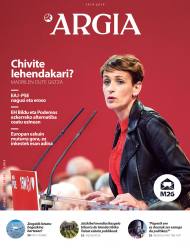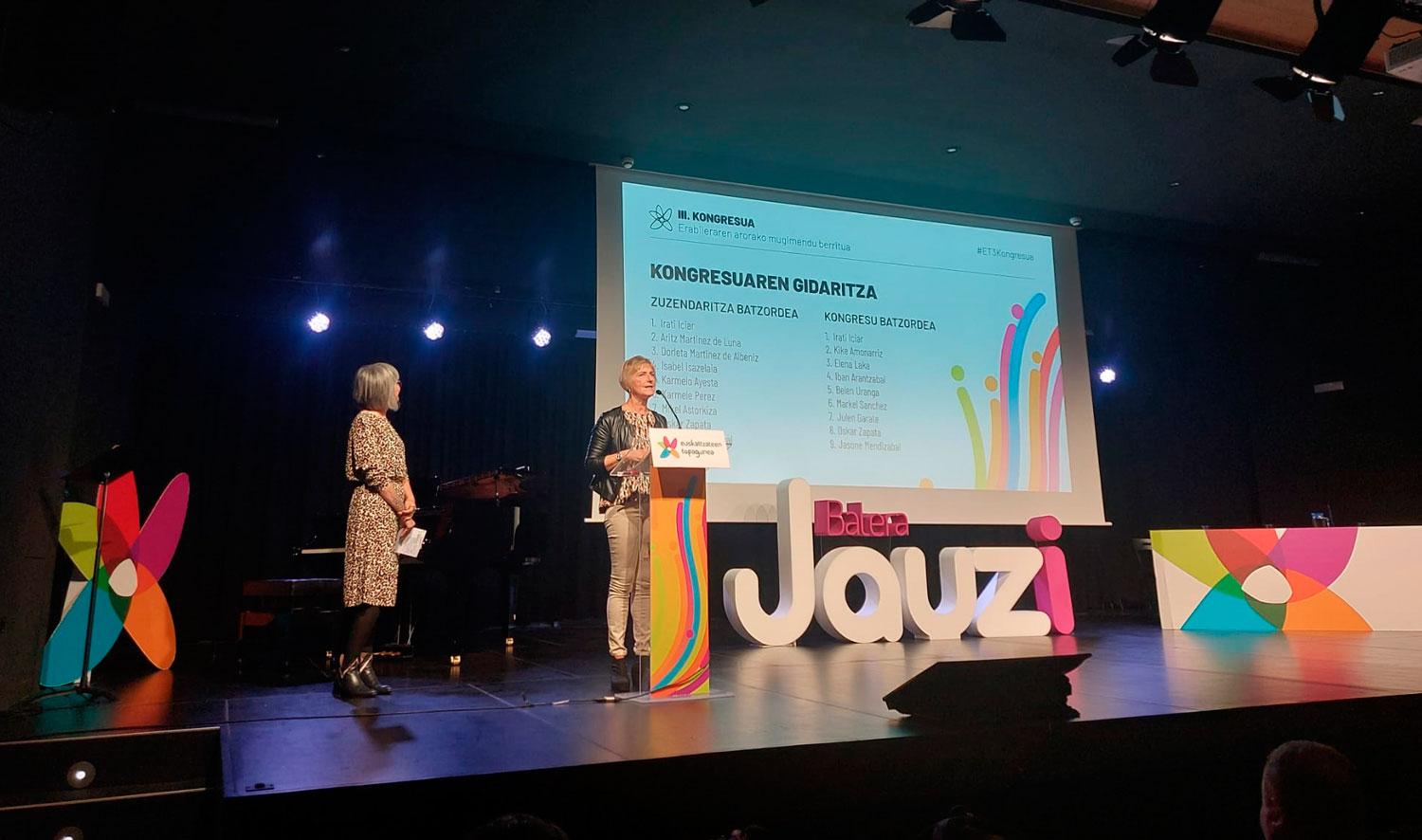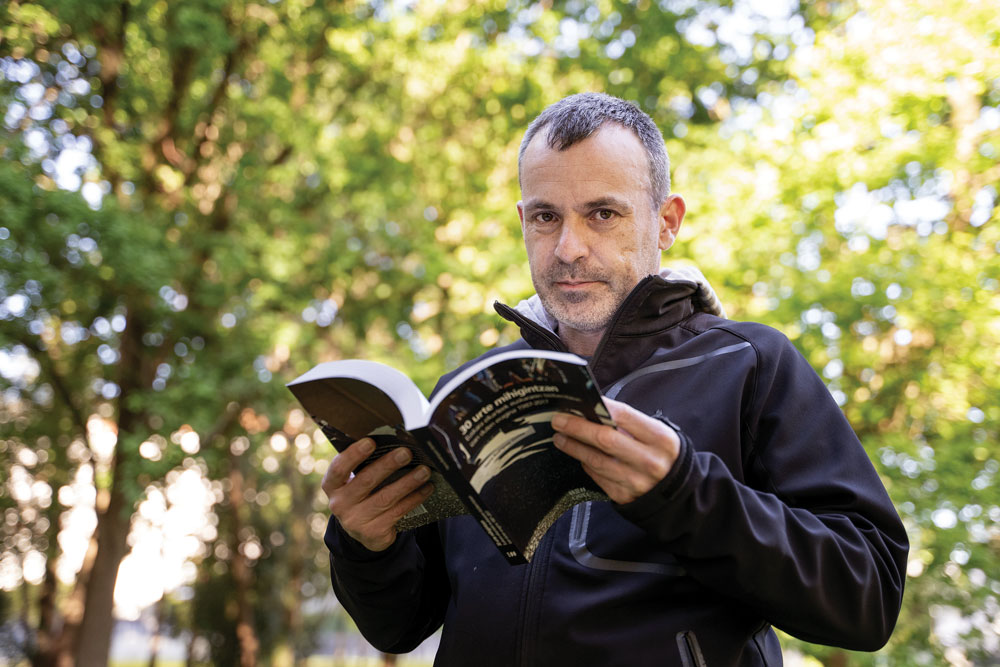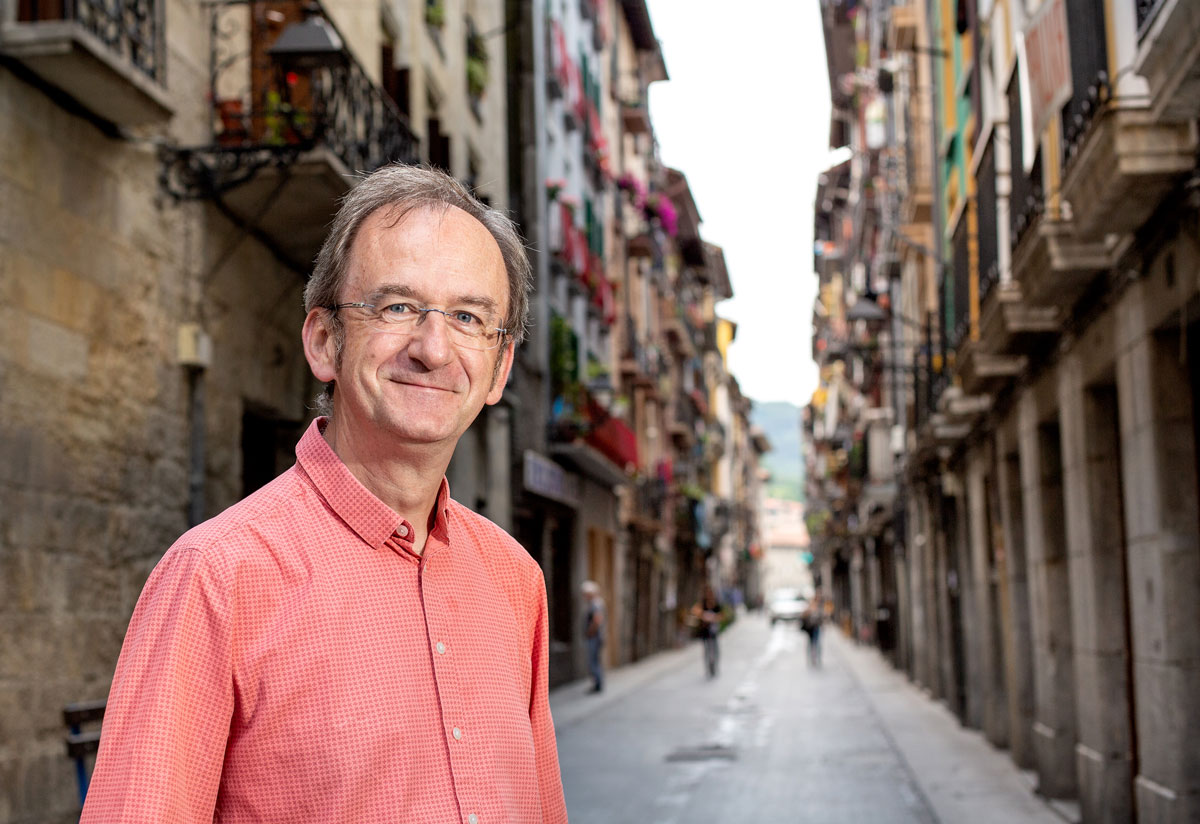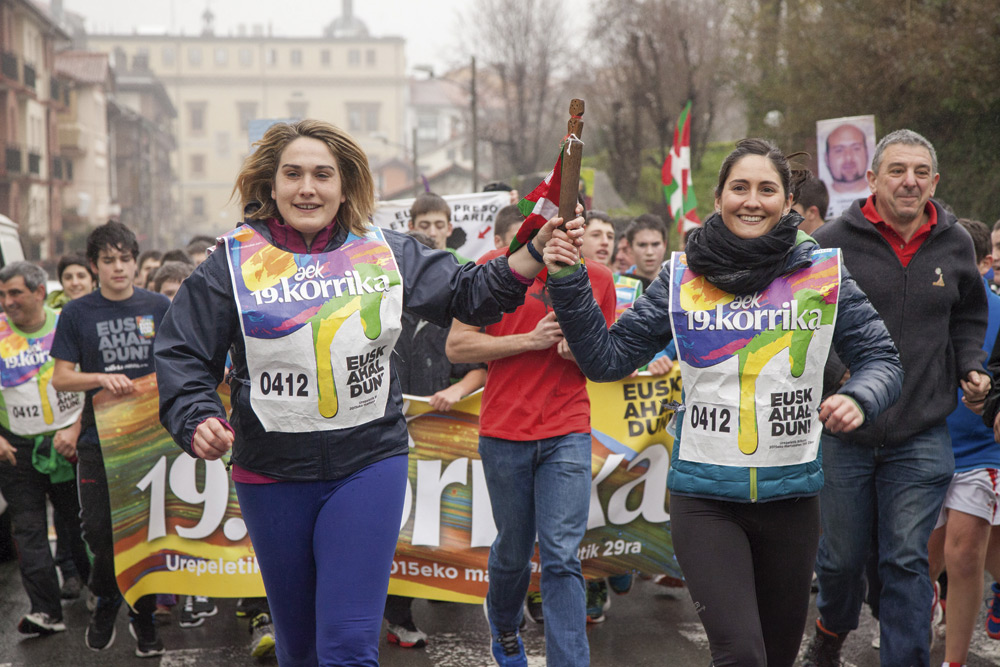7,000 Basques in 1,000 respiratory areas
- June 1 is a special day for the Mintzalagun, who will celebrate Mintza Day in Labarka Fog. Thousands of people meet in groups and weekly in 150 localities and counties to practice Euskera. On 1 June they will have the opportunity to get to know each other and compete with the community of interlocutors.
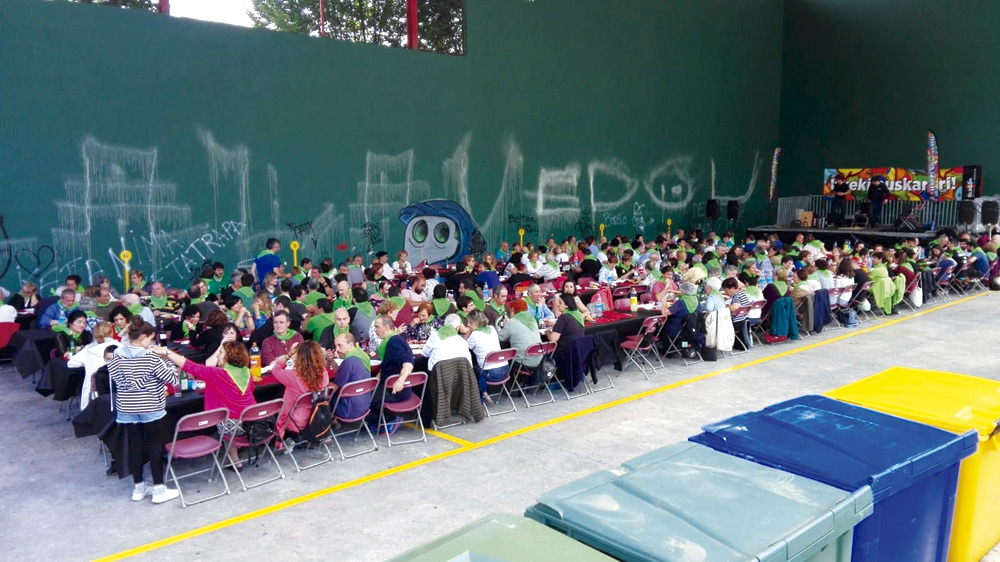
Ricardo Noriega Muñoz has spent a course at the mintzalagun in Hondarribia and is very happy. He has been studying Euskera for four or five years in the Basque Country, and last year he thought about testing the mintzalagun project. It is a unique opportunity for the Iraqi people, as it seems to them that the Basque country stays on the street. It has served to remove shame to join the group and speak in Basque, as it believes it still makes a lot of mistakes in the game. They meet once a week and decide on whatsapp where and for what to stop: to be in the bar, to make a pintxo pote...
He has met people of his style and met them on the street and have been able to maintain the Basque. Mintzalagun, in addition to the weekly appointment, have the opportunity to do other kinds of activities. Noriega read in Hondarribia that they went to the mountain of the hand of the Basque Association Blagan. Her daughter and she have gone three times. The daughter tells her father that she makes "pathetic" in Basque, but the father took advantage of her daughter's mountaineering to go to the mountain and speak in Basque in the group. The next course will be re-enrolled in the mintzalagun, as it feels good in the group and “because they are people who love our language”.
We talked to him on the eve of the Euskera test of level B2. He is a bus driver in Irun and believes that in order to provide a good service to his clients, he has to speak in Basque. If not tomorrow, you think you will also need the title. He participated in the Basque Country and has since put the belarriprest veneer. He talks in Basque with clients and colleagues, they know that the bus driver wants to speak in Basque.
In Labastida, while the children are in the music school...
Iratxe Uriarte Galdós is a neighbor of the Santutxu Bilbaíno district and lives in Labastida (Bizkaia). He belongs to the Mintzalagun group in Labastida and we asked him if his travelling partner or colleague – who perform well in Euskera and support his colleagues – or travel – who are to practice Euskera in the group. It has no trace of the role it plays. So we've realized that there are also groups that we didn't think were able to practice Basque. In the Uriarte team there are no fellow travellers or travellers, all of them have no problem speaking in Euskera. The aim of the members of the group is to work in a language they know perfectly, even for a while. Uriarte speaks in Basque with his children and with his partner, but says that in the rest of Labastida he has very little chance of doing so in Basque: “There are few people who speak in Basque and almost always adapt a Castilian speaking, so we don’t do it in Basque.”
The group is special and arises in a special way. The head of Mintzalaguna encouraged a professor of the ikastola to take over the group and began gathering several people from the area of the ikastola; they always meet in the bar of the house of culture, where the music school is located and the students who are in the center take advantage of the time that the children are in the music school to speak in Basque. Uriarte does not believe that the group meeting has a significant impact on the environment: “The professor of ikastola is known and when they see us they will think that we are together for something of the ikastola.” In Labastida, Uriarte has been convinced that, although Euskera is known, very little is said. She is the one who has the most concern with the children. They also do it in Spanish at ikastola and among the children. The bilbaíno has trusted that it will help them to hear their parents speak in Basque in the same way.
It hasn't spent 25 years in vain
Since its launch in Donostia-San Sebastian 25 years ago, the project has maintained its initial objective, although others have joined it along the way. The groups were created in the towns for students studying Basque in the Basque Country, with the aim of giving them the opportunity to speak in Basque. Today many of the members of the Mintzalagun groups are not students of the Basque Country. For very different reasons they point to groups in the locality or region: some are grandparents who had the Basque Country oxidized and who have decided that they have to recover the Basque Country when they have had grandchildren; others have joined the group for fear that in their day they would walk through the Basque Country and forget to use the language; there are also those who have been abroad and have returned home.
Maite Agirre, coordinator of the department of Mintzapraktika in Topagunea, has explained other objectives to us since the early years: “Mintzalagun helps this student who is learning Euskera to use it, and at the same time, the Basque who is helping him meets his desire to help others practice Euskera. But the interlocutor is much more than those personal purposes. The weekly group meeting at the bar influences the environment. A simple example: the members of the group will speak to the server in Basque.” Over the years, the organizers have realised that the groups are meeting another goal and have put the means to achieve it. In other words, it is difficult for them outside the group to speak in Basque, and in recent years the group has opened the way for them to do so. The intention is to take a step further in the day to day, outside the group. For example, they go to the theater or the movies together, which they probably wouldn't do on their own. This is what Agirre says: “After all, the comrades take the others out of the group and push them into the leap of everyday life to speak in Basque, sometimes helping them to get closer to their networks of relationships in Basque.” Any plan you like the theater, the cinema, the pintxo pote, the exit to the mountain... will be valid to jump from the comfort of the group to everyday life.
The Mintzalaguna groups have been created by several branches over a quarter of a century. Today there are also groups of mothers and fathers, Hikalagun and Euskalkilagun. In some places you can also go to the mountain every month. For the smaller ones, on the other hand, they have conversational adrilles.
The desire to know us
Participating in the group of the people gave the interlocutors a sense of community, but many felt they wanted to meet the peers of other peoples, they wanted to meet the friends who, like them, were practicing the Basque. Language Day began in 2006 with the aim of extending the community of speakers and speaking to the Basque Country. Then came the exits from the era of sidrería, and last year they were for the first time to the Durango Fair. Seven thousand Basque speakers have small and not so small centers to speak in Basque.
Ohi duenez, hinki-hankarik gabe jardun du Kike Amonarrizek orain hurrena kaleratu duen liburu mamiz betean: Euskararen bidegurutzetik (Elkar, 2019). Dioenez, ziklo aldaketa bizi dugu, eta hurrengo urteak giltzarri izan daitezke euskara komunitatearen etorkizunarentzat. Hargatik,... [+]









